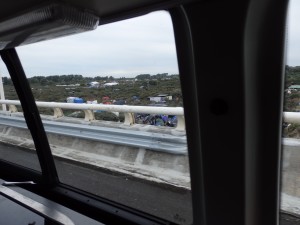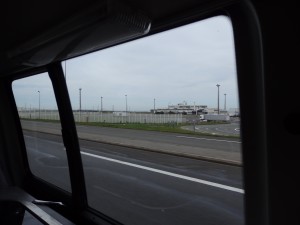Obama was an unusual candidate for president in 2008. I had serious questions in 2008.
One criticism of Obama is that his portfolio is mighty thin. He has no record. Well, he actually does and and here it is. Pretty interesting.
It’s a lengthy record filled with core liberal issues. But what’s interesting, and almost never discussed, is that he built his entire legislative record in Illinois in a single year.
Why was that ? In 2002, the Democrats took over the Illinois legislature, not because of Bush as the reporter says, but because the Republican governor got caught selling drivers’ licenses to truckers with bad driving records. A disastrous truck accident splashed the whole story across the newspapers and the Democrats took over in the next election.
The white, race-baiting, hard-right Republican Illinois Senate Majority Leader James “Pate” Philip was replaced by Emil Jones Jr., a gravel-voiced, dark-skinned African-American known for chain-smoking cigarettes on the Senate floor.
Jones had served in the Illinois Legislature for three decades. He represented a district on the Chicago South Side not far from Obama’s. He became Obama’s kingmaker.
Several months before Obama announced his U.S. Senate bid, Jones called his old friend Cliff Kelley, a former Chicago alderman who now hosts the city’s most popular black call-in radio program.
I called Kelley last week and he recollected the private conversation as follows:
“He said, ‘Cliff, I’m gonna make me a U.S. Senator.’”
“Oh, you are? Who might that be?”
“Barack Obama.”
Obama ended up in the US Senate because the GOP Senator, Peter Fitzgerald, did not run for re-election. Why ?
While State Senator he was a member of a group of conservative state senators elected in 1992 who often challenged the leadership of the Illinois Republican Party and were dubbed the “Fab Five”, the group also included, Steve Rauschenberger, Dave Syverson, Patrick O’Malley and Chris Lauzen.
After a hard-fought primary victory against Illinois Comptroller Loleta Didrickson, in which the latter had the support of most national and state-level Republican leaders, Fitzgerald defeated first-term Democratic incumbent U.S. Senator Carol Moseley Braun in 1998, and served for one term in the U.S. Senate. He was the first Republican in Illinois to win a U.S. Senate race in 20 years, and the only Republican challenger in the country to defeat an incumbent Democratic senator in the 1998 election cycle. Although Moseley Braun was dogged by negative publicity of corruption charges, Fitzgerald defeated her by only 2.9%.
Fitzgerald is a staunch conservative on such issues as opposition to abortion (except to save the life of the mother), gun control, gay marriage and taxes, but on some issues, particularly environmental issues — he opposed drilling in the Arctic National Wildlife Refuge throughout his tenure in the US Senate — he broke with conservative colleagues. He was one of only a handful of GOP Senators to support the McCain-Feingold campaign finance reform legislation.
He was a “maverick” and was not supported by “the Illinois Combine,” a term coined by columnist John Kass to describe the bipartisan corruption in Illinois politics that has brought the state to bankruptcy.
I called former U.S. Sen. Peter Fitzgerald, the Republican maverick from Illinois who tried to fight political corruption and paid for it. For this sin, he was driven out of Illinois politics by political bosses, by their spinners and media mouthpieces, who ridiculed him mercilessly.
Senator, what do you call that connection that Stuart Levine describes from the witness stand, you know that arrangement across party lines, with politically powerful men leveraging government to make money — what do you call it?
“What do you call that Illinois political class that’s not committed to any party, they simply want to make money off the taxpayers?” Fitzgerald said. “You know what to call them.”
What?
“The Illinois Combine,” Fitzgerald said. “The bipartisan Illinois political combine. And all these guys being mentioned, they’re part of it.”






